Diet and Digestive Health: Foods to Eat and Avoid for a Healthy Gut
Digestive health is imperative to overall health because it is involved in processes from food intake to energy transformation. In order to live a longer and happier life, one should always attempt to maintain a balanced gut microbiome. Our diet affects our gut bacteria, so we need to give them enough nutrients. To keep our microbiomes healthy, we should eat varieties of fresh whole foods mainly derived from plants, such as fruits, vegetables, legumes, beans, nuts, and whole grains. Through this blog, some dietary tips are provided, along with ways of incorporating and practicing healthy habits.
What is Gut Health and why is it Important?
The digestive system, also called the gut, consists of the stomach, intestines, and colon, which help in food digestion and absorption as well as waste excretion. If one has bad gut health, it can lead to fatigue, an uncomfortable stomach, skin problems, or autoimmune difficulties. Around 200 species of bacteria, viruses, and fungi comprise the gut microbiome, significantly contributing to the breakdown of food into nutrients the body can use. There are some bacteria that can cause various diseases, while others are helpful and beneficial in maintaining normal body functions.
Factors such as the consumption of foods can also influence digestive system bacteria, resulting in both immediate and protracted microbial situations in the intestine. Digestive health has been associated with the immune system, mental well-being, autoimmune conditions, endocrine problems, gastrointestinal tract disorders, heart disease, cancer, sleep patterns, and digestion, which may have potential implications for a range of health concerns.
What are the Reasons for an Unhealthy Gut?
The gut microbiome is influenced by many factors, including stress, lack of sleep, lack of exercise, processed food intake, and a sedentary lifestyle. alcohol use, cigarette smoking, and even the use of antibiotics, all of which are within our control. There are uncontrollable factors that also interact with the microbiome, like environment and age (old people tend to have different gut flora from young ones), mode of delivery (normal versus cesarean section), and breast feeding.
Experiencing shoulder pain? Contact us for expert care and relief today!
What are the Signs of an Unhealthy Gut?

When the gut isn’t healthy enough to function properly, it manifests through indigestion symptoms such as bloating or constipation, acid reflux, and diarrhea, together with other symptoms of an unhealthy gut including insomnia, irritability, or depression, fatigue, dull skin, or eczema, and an increased rate of viral diseases, especially upper respiratory tract infections.
How to Improve Gut Health?
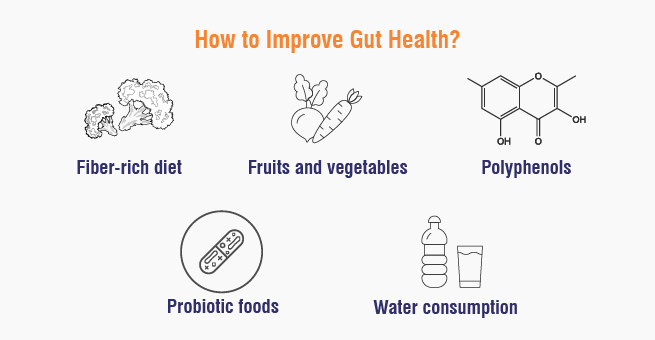
Evidently, food affects the gut microbiome, and it is essential to maintain a balanced one for good health. Certainly, for the maintenance of a healthy gut microbiome, one is advised to consume a variety of fresh and whole foods that are primarily plant-based, such as fruits, vegetables, legumes, beans, nuts, and whole grains. Foods to eat for a healthy diet include:
- Taking a fiber diet: There are a number of factors that make a diet high in fiber. It is very important for the overall well-being of an individual’s intestines because it influences the digestion process and the absorption of different nutrients, leading to improved quality stool as well as the prevention of some intestinal tract diseases like bowel cancer. Gut health may benefit most from prebiotic fibers available in select vegetable variants, such as legumes, seeds, grains, or nuts.
- Fruits and vegetables: Consuming a variety of fruits and vegetables provides a diverse range of vitamins, minerals, and health-giving substances. It is recommended to consume at least thirty plant-based food items per week. Ultra-processed foods should be consumed in their natural forms without added sugars, salts, unhealthy fats, or additives. Non-processed fruits and vegetables include whole grains, plain dairy products, eggs, fish, chicken, and lean beef cuts.
- Being hydrated: Water is mandatory for the gut; it helps in the digestion of food as well as the absorption of nutrients and makes stool soft. The relationship between a higher amount of water consumption and a greater variety of microbes living in the intestines might also be observed.
- Consuming polyphenols: Foods rich in polyphenols, such as herbs, spices, colorful fruits and vegetables, nuts and seeds, green and black tea, coffee, cocoa, and dark chocolate, may beneficially impact the gut microbiome. Eating slowly can reduce digestive discomfort and promote overall gut health.
- Considering probiotic foods: Fermented foods, such as yogurt, kimchi, sauerkraut, kefir, kombucha, and tempeh, have been linked with digestive health and other benefits.
In addition to the above food habits, one has to introduce meditation, walking, getting enough sleep, and also having a healthy lifestyle.
What are the Foods to Avoid for Better Digestive Health?
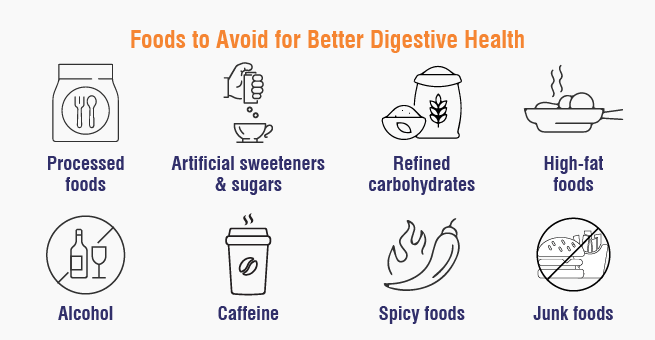
The following foods should be avoided to maintain a healthy gut:
- Processed foods: Ultra-processed items such as cold cuts, cereal boxes, frozen dinners, sugary treats, packaged meals, ready-made foods, and potato crisps should be avoided.
- Artificial sweeteners and sugars: Artificial sweeteners, such as aspartame, sucralose, and saccharin, are known for causing digestive upset and also having laxative effects, and sugars might cause imbalance in gut microbiomes.
- Refined carbohydrates: Refined carbohydrates, stripped of fiber, vitamins, and minerals during processing, are not beneficial for overall health, including gut health.
- Alcohol: Alcohol can disrupt the intestine microbiome, leading to symptoms like IBS, IBD, stomach irritation, increased permeability, and impaired gut functionality due to its dehydrating effect.
- High-fat foods: The excessive intake of trans and saturated fats may result in inflammation, stomach upset, and an imbalance of the gut microbiome, putting gut bacteria in danger.
- Caffeine: Caffeine might boost the production of stomach acid, possibly making worse situations such as gastric reflux or gastritis worse.
- Spicy foods: Chilli and peppers are spicy foods that induce digestive disorders owing to capsaicin, which is an irritating element in the stomach wall, thereby intensifying current digestion problems.
- Junk foods: Junk foods contain too much bad fat, refined sugar, and sodium, which makes people sick through stomach problems because they promote the growth of dangerous microbes, hence leading to an imbalance in this microbial community present inside humans guts.
Commonly Asked Questions
- What is the gut microbiome, and how does it impact digestion?
In the digestive system, there is a group of bacteria called the gut microbiome that serves as another brain for the body. The intestines have bacteria that create enzymes, which are needed for breaking down complex carbohydrates. This is important for having a healthy gut. A balanced microbiome ensures smooth functioning of all body processes, optimal digestion, and good health in general.
- What are probiotics and prebiotics?
Probiotics are foods or supplements that contain live microorganisms intended to maintain or improve the “good” bacteria (normal microflora) in the body. Prebiotics are foods (typically high-fiber foods) that act as food for human microflora.
- What is the FODMAP diet?
FODMAP, or fermentable oligosaccharides, disaccharides, monosaccharides, and polyols, are short-chain carbohydrates poorly absorbed by the small intestine. To alleviate symptoms of IBS and SIBO, it is essential to avoid high-FODMAP foods that worsen gut symptoms, such as milk products based on dairy, wheat-containing products including bread and cakes, beans and lentils, vegetables, and fruits. Instead, focus on low-FODMAP foods like eggs and meats; cheeses such as brie or camembert; cheddar or feta cheese; almond milk; grains such as rice, quinoa, or oats; vegetables such as eggplant, potato, tomato, cucumber, and zucchini; and fruits such as grapes, oranges, strawberries, blueberries, and pineapple.
- Does exercise help with gut health?
Exercise is beneficial for gut health as it improves digestion, reduces inflammation, boosts mood, and aids weight management. Regular exercise stimulates digestive muscles, reduces constipation, and also helps to maintain a healthy weight, which is crucial for gut health.
References:
- https://www.ncbi.nlm.nih.gov/pmc/articles/PMC5045668/
- https://www.medicalnewstoday.com/articles/326596#summary
- https://www.healthline.com/health/gut-health#faq
- https://www.betterhealth.vic.gov.au/health/healthyliving/gut-health
- https://www.hopkinsmedicine.org/health/wellness-and-prevention/eating-for-your-gut




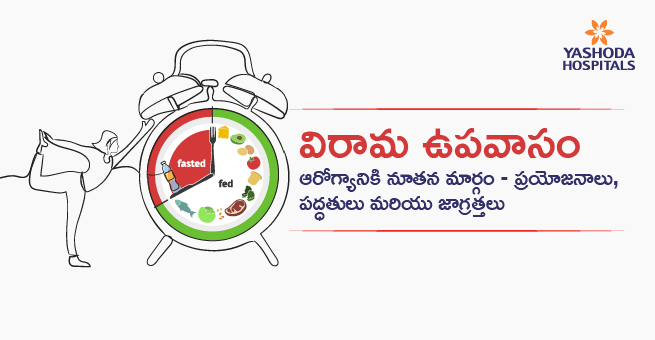


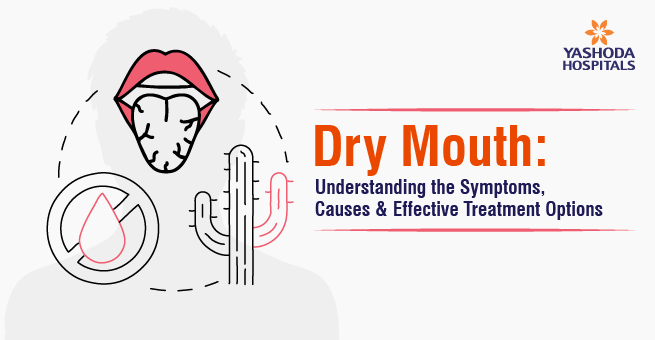



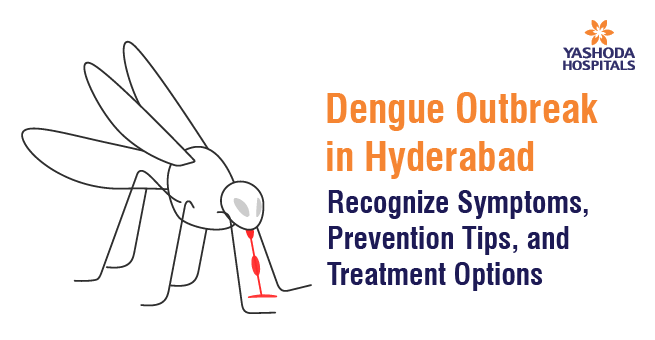

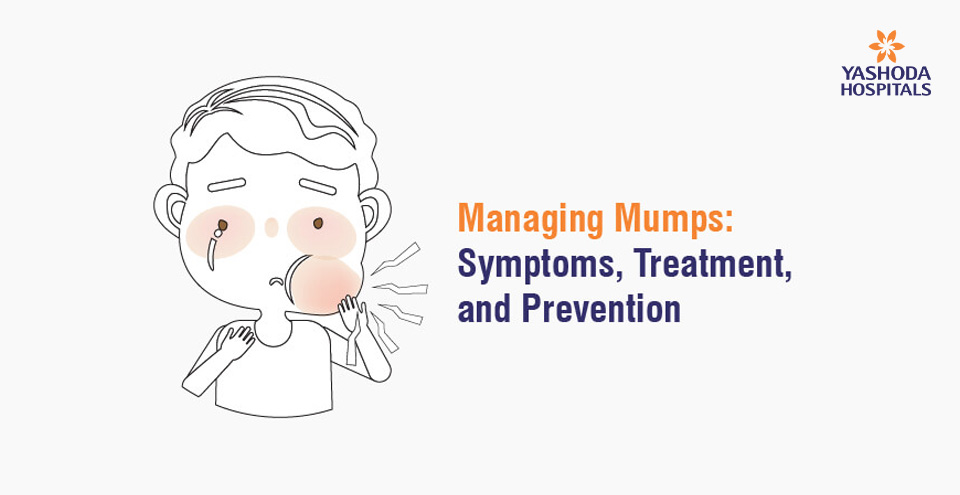
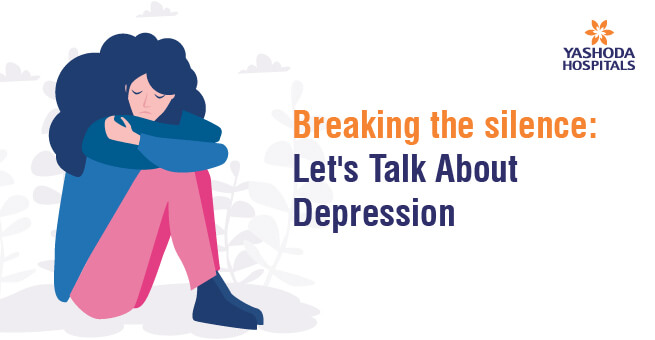




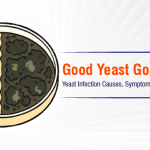
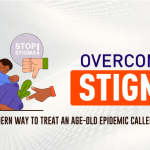
 Appointment
Appointment WhatsApp
WhatsApp Call
Call More
More